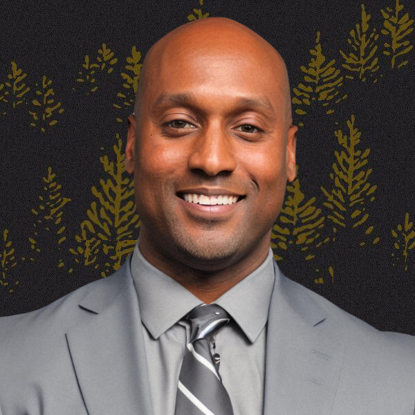
Tacoma Personal Injury Attorneys
Putting Your Best Interests First
After a serious accident or injury, you need a legal team that will protect your best interests and fight for the fair compensation you are owed. At Pacific Cascade Legal, we provide aggressive, dedicated legal representation to those harmed by the negligent and wrongful conduct of others. As your legal team, we are committed to helping you navigate the legal process, all while seeking maximum compensation on your behalf. We truly care about you and your recovery.
If you were injured in an accident or as a result of someone else’s negligence, you could be entitled to significant financial compensation. Reach out to Pacific Cascade Legal today to learn how our Tacoma personal injury lawyers can help.
Call (253) 300-4521 or contact us online to request a free, no-obligation consultation.
Filing a Personal Injury Claim in Washington State
In Washington, you have the right to file a personal injury claim if you were injured due to someone else’s negligent or wrongful conduct. This includes negligent and wrongful acts or omissions by other people, property owners, businesses, corporations, government agencies, manufacturers, and other parties. Essentially, if someone else caused you harm, you can seek financial compensation for your resulting economic and non-economic damages.
To successfully file a personal injury claim, you will need to know the state’s personal injury laws. These laws cover everything from the amount of time you have to sue for damages to what types of damages you can recover, what you need to demonstrate to prove your case, and more.
Below we have provided a brief overview of Washington State’s personal injury statute and important elements of filing a claim that you should know. Continue reading to learn more or reach out to Pacific Cascade Legal directly to speak to an experienced member of our team at no cost.
How Long Do You Have to File a Personal Injury Lawsuit in Washington?
The statute of limitations—or filing deadline—for most personal injury cases in Washington is three years from the date of injury. This means that you typically have three years from the date on which you were injured to sue for damages. If you wait too long, the court can dismiss your case, barring you from recovering any compensation for your losses.
There are some exceptions to the three-year statute of limitations, though they are rare. These exceptions include cases in which:
- The injury was not and could not have been discovered immediately
- The injured party was under the age of 18 when they were injured
- The plaintiff (the person bringing the claim) is suing a government entity
In some cases, you may have slightly more time to bring your lawsuit; in other instances, you could have even less time. In any case, it is important that you act quickly, as the sooner you reach out to our Tacoma personal injury attorneys, the sooner we can begin gathering evidence and building a powerful case on your behalf.
Proving Your Personal Injury Case
As the person bringing the claim, known as the plaintiff, you have the burden of proof in your personal injury case. This means that you are the one responsible for proving your position against the other party, known as the defendant.
To prove a negligence-based case, you must prove that:
- You Were Injured: You only have a case if you were injured. You must prove that you suffered a physical, cognitive, emotional, or psychological injury to file a personal injury claim against another person or party.
- You Sustained Damages: You must also prove that you suffered damages, or losses, because of your injury. Examples of common damages in personal injury cases including medical bills, lost wages, and pain and suffering.
- The Defendant Owed You a Duty of Care: You will need to prove that the defendant in your case had a legal obligation to take certain actions and/or avoid certain actions to prevent foreseeable harm. This is known as a “duty of care.”
- The Defendant Breached the Duty of Care: You must prove that the defendant failed to uphold (or “breached”) the duty of care. Most often, this involves proving that the defendant was negligent or acted wrongfully in some way.
- The Defendant’s Conduct Was the Cause of Your Injury: Lastly, you must establish the causal connection between the defendant’s negligent or wrongful act or omission and your injury. In other words, you must prove that they were at fault for your injury.
At Pacific Cascade Legal, we diligently prepare cases using all available evidence to support our clients’ claims. Our legal team can help you prove the various elements of your case. Get in touch with us today to learn more during a no-cost, no-obligation consultation.
How Does Comparative Fault Work in Washington State?
In the U.S., different states follow different rules when it comes to shared fault. In states that follow contributory negligence rules, injured parties who were even slightly at fault for the incident that led to their injuries cannot recover any compensation for their damages. However, in states like Washington that follow the more plaintiff-friendly rule of comparative negligence, it is possible to seek compensation for your damages if you were partly to blame.
In fact, Washington State follows a rule of pure comparative negligence. This means that you can file a personal injury claim even if your degree of fault outweighs that of the other party. In other words, you do not have to be less at fault than the defendant to still have a case.
It is important to note, however, that your financial recovery will be affected if you are found to be partly at fault. Under the pure comparative negligence rule, your recovery is reduced by your at-fault percentage. So, if you are found to be 40% to blame for the incident that caused your injury, you can only recover up to 60% of the total amount you have sustained in damages. This can significantly affect your overall recovery, potentially resulting in the loss of multiple thousands of dollars.
Insurance companies know about this rule, and they often try to use it to devalue injury claims. The insurance adjuster may argue that you were largely at fault for an accident and, therefore, only entitled to a tiny fraction of your damages. For this reason, it is extremely important that you work with a skilled and knowledgeable attorney, like ours at Pacific Cascade Legal, who can protect your rights and fight back against the insurance company’s efforts to dispute, devalue, or deny your claim.
How the Attorneys at Pacific Cascade Legal Can Help
We have extensive experience representing injured individuals in all types of personal injury cases. Our award-winning attorneys are here to guide you through the entire process, all while providing the personalized support and dedicated advocacy you deserve.
We assist clients with personal injury cases involving the following and more:
- Car accidents
- Bicycle accidents
- Bus accidents
- Pedestrian accidents
- Construction accidents
- Truck accidents
- Motorcycle accidents
- Medical malpractice
- Premises liability
- Slip and fall accidents
- Dog bites
No matter how complex or challenging your unique situation may be, our team is here to provide the help you need. We understand that this is a very difficult time in your life, which is why we offer highly compassionate and personalized legal representation. Reach out to our Tacoma personal injury attorneys today to learn how we can help you.
For a free consultation and case evaluation, call (253) 300-4521 or contact us online using the secure request form here on our website.
Personal Injury FAQ
What types of damages can I recover in my personal injury case?
While every case is different, and the exact types of damages you can recover in your case depend on the many unique factors involved, there are certain damages you may be entitled to seek. Common economic and non-economic damages include medical expenses, future care costs, lost wages/income, lost earning ability, pain and suffering, emotional distress, and miscellaneous out-of-pocket expenses, such as in-home care or transportation costs. At Pacific Cascade Legal, we can help you understand what types of damages you may be entitled to, depending on the details of your case. Reach out to us today to request a complimentary case evaluation.
Should I accept the insurance company’s settlement offer?
In nearly all cases, it is best to speak to an attorney before accepting the insurance company’s settlement offer. This is because many insurance companies will try to lowball claimants, offering far less than their claims are truly worth. Once you agree to a settlement, you usually cannot seek any further compensation, even if your condition worsens or you end up needing more extensive medical care than you originally thought you would. To avoid accepting a too-low settlement offer, you should talk to the lawyers at Pacific Cascade Legal before speaking to anyone from the insurance company. Never sign anything or agree to the insurance company’s first offer without speaking to an attorney.
Why should I hire a personal injury lawyer?
When you are injured, you need someone by your side who has your best interests in mind. This is not the insurance company. No matter how understanding the insurance adjuster may seem, their only goal is to avoid paying out a ton of money on your claim. They will likely offer a lowball settlement that does not even come close to covering the full cost of your physical, emotional, and financial losses. An attorney can fight back against these efforts and protect your rights every step of the way. At Pacific Cascade Legal, we truly care about our clients. Our team is ready to help you fight for the maximum compensation you deserve so that you can begin to heal and move forward with your life.

-
 About Us
About Us -
 Resources
Resources -
 Video FAQ
Video FAQ

Meet Your Advocates
Focused on Client Relationships, Integrity, Results & A Better Tomorrow
-
 Lewis Irwin Landerholm Founding Partner
Lewis Irwin Landerholm Founding Partner -
 Will M. Jones Partner
Will M. Jones Partner -
 Alan Nieczyporuk Attorney
Alan Nieczyporuk Attorney -
 Natalie Thorp Jr. Partner
Natalie Thorp Jr. Partner -
 Kimberly Brown Attorney
Kimberly Brown Attorney -
 Darin Wisehart Attorney
Darin Wisehart Attorney -
 Sarah Bain Attorney
Sarah Bain Attorney -
 Olivia Raymond-Williams Attorney
Olivia Raymond-Williams Attorney -
 Timothy Downin Attorney
Timothy Downin Attorney -
 Christy Carpenter Limited License Legal Technician
Christy Carpenter Limited License Legal Technician -
 Shanni Moore Paralegal
Shanni Moore Paralegal -
 Eryn Sisson Paralegal
Eryn Sisson Paralegal -
 Lauren Antrim Associate Manager of Finance, Human Resources & Administration
Lauren Antrim Associate Manager of Finance, Human Resources & Administration -
 Terrance Hogan Attorney
Terrance Hogan Attorney -
 Andy Kralios Attorney
Andy Kralios Attorney -
 Michael Trotter Attorney
Michael Trotter Attorney -
 Zach Santos Attorney
Zach Santos Attorney -
 Lisa Parsons Lead Paralegal / Workflow & Training Specialist
Lisa Parsons Lead Paralegal / Workflow & Training Specialist -
 Lesley Sepetoski Paralegal
Lesley Sepetoski Paralegal -
 Laura Pride Paralegal
Laura Pride Paralegal -
 Jeannette Cordova Paralegal
Jeannette Cordova Paralegal -
 Kailey Maginnis Paralegal
Kailey Maginnis Paralegal -
 Teena Quichocho Paralegal
Teena Quichocho Paralegal -
 Zulema Cornejo Paralegal
Zulema Cornejo Paralegal -
 Claudine McKague Legal Assistant
Claudine McKague Legal Assistant -
 Rachel Woleben Director of Finance, Human Resources, and Administration
Rachel Woleben Director of Finance, Human Resources, and Administration -
 Kari Landerholm Director, Marketing & Growth
Kari Landerholm Director, Marketing & Growth -
 Steve Altishin Director, Client Partnerships
Steve Altishin Director, Client Partnerships -
 Jeremy Armitage Associate Manager of Finance, Technology, and Administration
Jeremy Armitage Associate Manager of Finance, Technology, and Administration -
 Claudia Preciado Client Billing Manager
Claudia Preciado Client Billing Manager
































